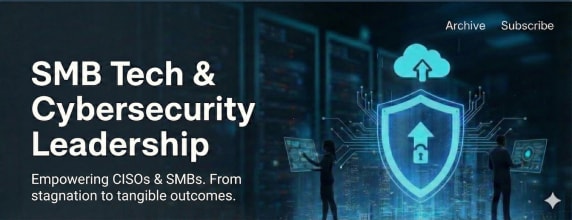Enhancing Security in Open-Source Code for SMBs
Safeguarding Business Integrity while using Public Software Repositories
In the digital world today, it is more often than not that small and medium-sized businesses are found turning to open-source code and public software repositories to be able to build and enhance their technological capabilities. On one hand, such resources bring about considerable cost savings and advantages of innovation, but on the other hand, they also bear the potential security risks that might compromise the integrity of business operations. It is against this backdrop that, as a senior cybersecurity leader and advisor, I come forth to place emphasis on the security and integrity of open-source code and how SMB leaders and security teams can effectively deal with these risks.
Open-source software has become a cornerstone for many businesses, providing a flexible and cost-effective way to access cutting-edge technology. However, the very nature of open-source code—its openness and collaborative development—can also make it a target for malicious actors seeking to exploit vulnerabilities. For SMBs, which may lack the extensive resources of larger enterprises, the challenge is to harness the benefits of open-source software while mitigating the associated risks. By prioritizing security and integrity in open-source code, SMBs can protect their assets, maintain customer trust, and ensure business continuity.
Examples of Use Cases and their value
Code Review and Vulnerability Assessment: It is crucial to regularly review open-source code for vulnerabilities. This task helps identify potential security flaws before they can be exploited, thereby protecting the organization from breaches and data loss.
Implementing Security Tools: Tools such as static code analyzers and dependency checkers can automate the process of detecting vulnerabilities in open-source components. This not only saves time but also enhances the organization's overall security posture.
Community Engagement and Contribution: Participating in open-source communities lets businesses stay informed about the latest security patches and updates. Contributing to these communities can foster goodwill and collaboration, leading to more robust and secure software solutions.
Current Environmental Challenges and Solutions
The open-source ecosystem is vast and constantly evolving, which presents several challenges:
Rapidly Changing Codebases: Maintaining frequent updates and patches can be daunting. SMBs can overcome this by implementing automated update management systems that ensure the timely application of security patches.
Lack of In-House Expertise: Many SMBs struggle with limited cybersecurity expertise. Partnering with external cybersecurity firms or consultants can provide support and guidance to manage open-source risks effectively.
Supply Chain Vulnerabilities: Software dependencies' interconnected nature can introduce vulnerabilities. Conducting thorough supply chain risk assessments and utilizing tools that map and monitor dependencies can help mitigate these risks.
Potential Future Solutions
Looking ahead, SMBs can optimize their approach to open-source security by:
Adopting AI and Machine Learning: These technologies can enhance threat detection and response capabilities, providing real-time insights into potential vulnerabilities and threats.
One possible use case includes the ability to analyze SBOMs, connect software packages to those in use in the environment, and aid with the remediation of patching or updates.
Developing a Security-First Culture: Encouraging a mindset where security is integrated into every aspect of software development and deployment can lead to more secure outcomes. This involves training employees and fostering an environment where security is everyone's responsibility.
Actionable Summary
To effectively manage the security and integrity of open-source code, SMB leaders and security teams should focus on the following action items:
Conduct regular code reviews and vulnerability assessments.
Implement automated tools for detecting and managing vulnerabilities.
Engage with open-source communities for the latest security updates.
Partner with cybersecurity experts to enhance in-house capabilities.
Foster a security-first culture within the organization.
By taking these steps, SMBs can leverage the benefits of open-source software while minimizing security risks, ultimately enhancing their resilience in an increasingly digital world.
Product shout-out: LearnWorlds
At CPF Coaching, we're always on the lookout for top-notch tools that empower our clients to the max. This is why we couldn't, but we are very excited about recommending LearnWorlds. Just recently named "Top User-rated Online Course Platform & LMS," LearnWorlds is a supreme platform that allows the world to leverage your knowledge and talents. Whether you're an educator, coach, or business leader, it really has everything you need to run highly engaging and impactful online courses. Time to make a difference—find a way to share your value with those who need it the most!





